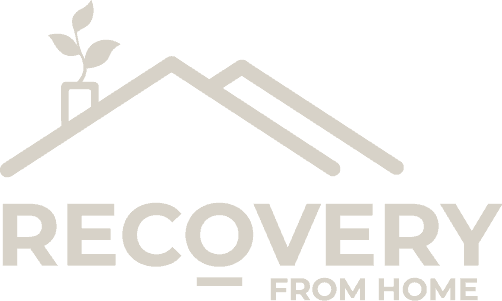Understanding High-Functioning Drug Addicts and Online Treatment Options
Introduction: Who Is a High-Functioning Drug Addict?
When you hear the term “drug addict,” you might picture someone whose life is visibly falling apart—someone struggling to hold a job, maintain relationships, or stay out of trouble. But not all addiction looks like that. As a psychologist specializing in addiction, I want to shed light on a less obvious but equally serious issue: high-functioning drug addicts. These are individuals who manage to maintain their careers, social lives, and responsibilities while secretly battling substance dependence. This article will explain who high-functioning drug addicts are, how to identify them, why their addiction often goes unnoticed, and how online treatment options can offer a lifeline for recovery. Written for the everyday reader, this guide aims to inform and empower you to recognize the signs and explore accessible solutions.
What Is a High-Functioning Drug Addict?
A high-functioning drug addict is someone who uses drugs regularly—often to the point of dependence—but still manages to perform well in key areas of life, like work, family, or social settings. They might be the successful professional who uses cocaine to stay alert, the parent who relies on prescription painkillers to “manage stress,” or the student who uses Adderall to ace exams. On the surface, their lives look put-together, but underneath, they’re grappling with a serious problem.
Why Does This Happen?
High-functioning addicts often use drugs to cope with pressure, enhance performance, or numb emotional pain. Unlike stereotypical images of addiction, they may not show obvious signs of decline, at least not at first. Their ability to “function” comes from a mix of discipline, denial, and access to resources (like money or social support) that help them hide their drug use. However, this balancing act is unsustainable, and over time, the physical, mental, and emotional toll of addiction catches up.
How to Identify a High-Functioning Drug Addict
Recognizing a high-functioning addict can be tricky because they’re skilled at masking their struggles. Here are some key signs to watch for, whether in yourself or someone you care about:
Behavioral Clues
- Inconsistent Performance: They may excel at work or school but have occasional unexplained dips in productivity or focus.
- Secretive Habits: They might disappear for short periods, make excuses for odd behavior, or be overly private about certain routines.
- Mood Swings: Sudden irritability, anxiety, or bursts of energy that don’t match the situation can hint at drug use.
- Over-Reliance on Substances: They may casually mention needing a drink, pill, or “boost” to get through the day, even if framed as a joke.
Physical and Health Signs
- Changes in Appearance: Subtle signs like weight loss, fatigue, or bloodshot eyes might appear, though they’re often explained away.
- Sleep Issues: Trouble sleeping or irregular sleep patterns can signal drug use, especially with stimulants or opioids.
- Frequent Illness: Chronic drug use weakens the immune system, leading to recurring colds or infections.
Social and Emotional Patterns
- Defensiveness: They may get touchy or angry when asked about their habits or health.
- Neglecting Hobbies: Interests they once loved may take a backseat to drug use, even if they maintain other responsibilities.
- Strained Relationships: Subtle tension with family or friends may arise due to their secretive behavior or emotional volatility.
Why It’s Hard to Spot
High-functioning addicts are often masters of denial, both to themselves and others. They might justify their drug use as “under control” or “necessary” for their lifestyle. Social stigma also plays a role—people assume addiction always looks chaotic, so a successful, polished person doesn’t fit the mold. This makes it easy for their struggles to go unnoticed until a crisis, like a health scare or job loss, forces the issue into the open.
Why Does High-Functioning Addiction Matter?
Even if someone seems to “handle” their drug use, the consequences are real and cumulative:
- Physical Health: Drugs like cocaine, opioids, or stimulants can damage the heart, liver, and brain over time, even in small doses.
- Mental Health: Chronic use increases the risk of anxiety, depression, and paranoia, which can erode emotional stability.
- Career and Relationships: The façade of functionality often crumbles, leading to job loss, divorce, or alienation from loved ones.
- Escalation: What starts as “controlled” use often spirals into full-blown addiction as tolerance builds and dependence deepens.
Ignoring these risks can trap someone in a cycle where they need more drugs to maintain their performance, only to face bigger problems down the line.
The Role of Online Treatment Options
For high-functioning addicts, seeking help can feel daunting. They may fear judgment, worry about their reputation, or struggle to fit traditional rehab into their busy lives. This is where online treatment options shine, offering discreet, flexible, and effective support. Here’s how they work and why they’re a game-changer:
Types of Online Treatment
- Teletherapy: Virtual sessions with licensed therapists allow individuals to address the root causes of their addiction, like stress or trauma, from the privacy of their home. Platforms like BetterHelp or Talkspace connect users with professionals trained in addiction.
- Online Support Groups: Programs like SMART Recovery or Narcotics Anonymous offer virtual meetings where people can share experiences and build accountability without needing to attend in person.
- Digital Recovery Programs: Apps like Recovery Box or Sober Grid provide tools for tracking sobriety, managing cravings, and connecting with a recovery community.
- Virtual Medical Support: Telemedicine services can link users with doctors who prescribe medications for addiction (e.g., buprenorphine for opioid dependence) or manage withdrawal symptoms.
Benefits of Online Treatment
- Privacy: High-functioning addicts often fear being “found out.” Online platforms let them seek help anonymously, reducing stigma.
- Flexibility: Virtual sessions can fit into busy schedules, making it easier for someone juggling work or family responsibilities.
- Accessibility: Online options are ideal for people in rural areas or those without nearby treatment centers.
- Affordability: Many online services are more cost-effective than in-person rehab, with sliding-scale fees or subscription models.
- Personalized Care: Digital platforms often use data-driven tools to tailor treatment plans, helping users address their specific triggers and goals.
Challenges to Consider
While online treatment is powerful, it’s not perfect. A stable internet connection is essential, and some people may miss the in-person connection of traditional therapy. Severe addiction cases, especially those involving dangerous withdrawal symptoms, may still require in-person medical supervision. However, online options can serve as a starting point or complement other treatments.
How to Take the First Step
If you or someone you know might be a high-functioning addict, here’s how to move forward:
- Acknowledge the Problem: Admitting there’s an issue, even privately, is the first step. Reflect on how drug use affects your health, mood, or relationships.
- Explore Online Resources: Research platforms like BetterHelp, SMART Recovery, or local telemedicine services. Many offer free trials or introductory sessions.
- Talk to a Professional at Recovery From Home: A therapist or doctor can assess your situation and recommend a treatment plan, whether online or in-person.
- Build a Support Network: Share your journey with a trusted friend or join an online support group to feel less alone.
- Set Small Goals: Start by cutting back on drug use, tracking your progress with an app, or attending one virtual therapy session. Small steps add up.
Why This Matters
High-functioning drug addicts often fly under the radar, but their struggles are just as real—and just as dangerous—as more visible forms of addiction. By understanding the signs and embracing online treatment options, individuals can break free from dependence without upending their lives. These tools offer hope, privacy, and flexibility, making recovery more accessible than ever.
A Path to Recovery
Being a high-functioning drug addict doesn’t mean you’re immune to the consequences of addiction—it just means they’re harder to see. Recognizing the subtle signs, like mood swings, secretive behavior, or reliance on substances, is the first step toward change. Recovery From Home offers a lifeline with its comprehensive online rehab services, providing discreet teletherapy, virtual support groups, and personalized digital tools tailored to your needs. Whether you’re juggling a demanding career or family responsibilities, Recovery From Home’s flexible, accessible platform allows you to seek help without disrupting your life. If you or someone you care about is struggling, don’t wait for a crisis. Visit Recovery From Home to explore their expert-led online treatment options and take the first step toward a healthier, freer life. Recovery is possible, and it’s just a click away.
Our Applications Cover Diverse Corporate Markets
Take the first step
Are you ready to make a change? Contact us today to learn how our at-home addiction program can help you or your loved one achieve lasting recovery.
Confidential & Individualised Addiction and Detox Treatment from Home. Fill out the form below, and we’ll get back to you within 24 hours












Leave A Comment